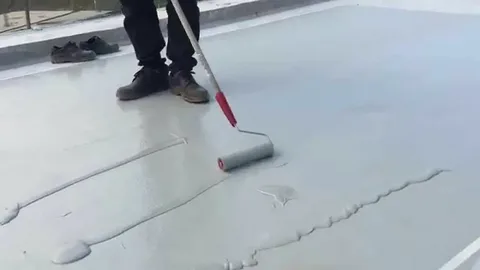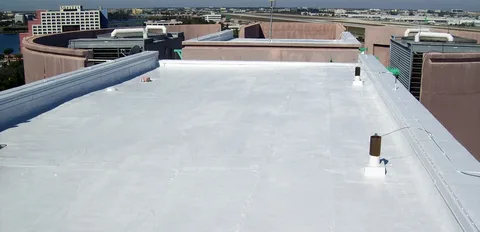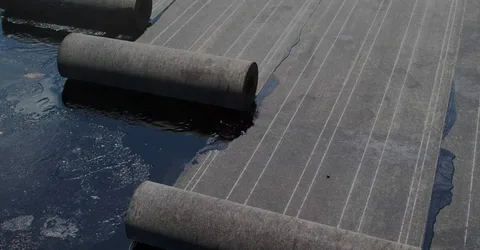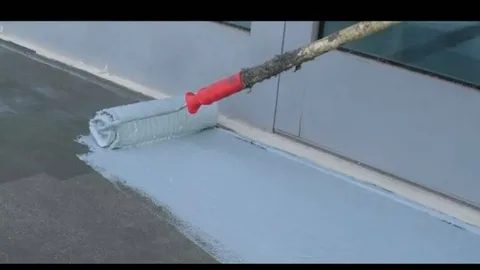In a city like Pakpattan, where climate variations can pose challenges to the structural integrity of buildings, having a reliable waterproofing Company in Pakpattan. One such company that stands out in providing effective waterproofing services is Masterrooftreatments a trusted name in the industry.
Why Waterproofing Matters:
Pakpattan experiences diverse weather conditions, from scorching summers to occasional heavy rains. These variations can take a toll on buildings, leading to issues such as dampness, leaks, and weakened structures. Waterproofing is not just about preventing water ingress; it’s a proactive measure to ensure the longevity and durability of buildings.

Understanding the Need for Waterproofing
Pakpattan, like many regions, experiences diverse weather patterns ranging from heavy rains to intense humidity. Such conditions pose significant threats to the structural integrity of buildings, causing leaks, dampness, and mold growth. Without proper waterproofing measures, homes are susceptible to extensive damage, compromising both safety and comfort.
Benefits of Waterproofing
- Prevents Structural Damage: Waterproofing shields your home’s foundation, walls, and roof from water infiltration, preserving their strength and stability.
- Protects Interior Spaces: By creating a moisture barrier, waterproofing safeguards interior spaces against dampness, mold, and mildew, promoting a healthy living environment.
- Enhances Property Value: A waterproofed home commands higher resale value and attracts potential buyers by demonstrating proactive maintenance and longevity.
The Need for Waterproofing in Pakpattan:
Pakpattan, situated in the heart of Punjab, experiences a diverse climate with monsoons bringing substantial rainfall. With such weather conditions, the risk of water seepage, dampness, and structural damage to buildings is significantly higher. Waterproofing becomes a crucial aspect of maintaining the integrity and longevity of structures.

The Impact of Weather on Homes in Pakpattan:
The unpredictable weather conditions in Pakpattan pose a threat to the longevity of buildings. Without proper protection, structures can suffer from water seepage, dampness, and other issues, leading to costly repairs. This is where professional waterproofing services play a crucial role in safeguarding homes against potential damage.
Key Waterproofing Services Offered by Master Roof Treatments:
- Roof Waterproofing: Protecting your home starts from the top. Master Roof Treatments specializes in roof waterproofing to prevent leaks and water damage, ensuring a dry and secure living space.
- Basement Waterproofing: Recognizing the vulnerability of basements to water seepage, the company offers specialized services to waterproof basements, protecting valuable possessions and the structural foundation.
- Wall Waterproofing: Master Roof Treatments employs advanced techniques to waterproof walls, preventing moisture penetration and the development of mold or mildew.
- Foundation Crack Repair: Addressing the root cause of water intrusion, the company provides services to repair foundation cracks, reinforcing the stability of your home’s structure.

The Role of Waterproofing Services:
Waterproofing services play a pivotal role in safeguarding properties against water-related damages. By applying specialized techniques and materials, professional waterproofing companies create barriers that repel water, preventing it from seeping into walls, roofs, and foundations. This proactive approach not only protects the structural integrity but also enhances the overall quality and value of the property.
Types of Waterproofing:
Waterproofing is a vital process that involves making a structure or surface resistant to the penetration of water or moisture. There are various types of waterproofing methods, each suited to specific applications and conditions. Here are some common types of waterproofing:
- Cementitious Waterproofing:
- Cementitious waterproofing involves the application of a cement-based mixture to surfaces like concrete, masonry, or brick.
- This method forms a rigid waterproof barrier that is durable and resistant to water penetration.
- It is commonly used for basement walls, swimming pools, and water tanks.
- Liquid Waterproofing Membrane:
- Liquid waterproofing membranes are applied as a liquid coating onto surfaces to form a seamless, flexible, and waterproof barrier.
- These membranes can be made from various materials such as acrylics, polyurethanes, or rubberized asphalt.
- Liquid membranes are ideal for irregular surfaces, roofs, balconies, and areas with high foot traffic.
- Bituminous Waterproofing:
- Bituminous waterproofing involves the application of bitumen-based materials to create a waterproof membrane.
- Bitumen is a petroleum-based substance known for its waterproofing properties.
- This method is commonly used for roofs, foundations, and below-grade structures.
- Polyurethane Waterproofing:
- Polyurethane waterproofing involves the application of polyurethane-based materials to create a seamless and elastic waterproof membrane.
- It provides excellent resistance to UV rays, weathering, and chemical exposure.
- Polyurethane waterproofing is suitable for roofs, balconies, terraces, and areas exposed to harsh weather conditions.
- EPDM Waterproofing:
- EPDM (ethylene propylene diene monomer) waterproofing membranes are synthetic rubber membranes that are highly durable and resistant to UV rays and weathering.
- EPDM membranes are available in sheets or rolls and can be installed by adhering, mechanically fastening, or ballasting.
- They are commonly used for flat roofs, ponds, and landscape features.
- Silicone Waterproofing:
- Silicone waterproofing involves the application of silicone-based coatings or sealants to create a flexible and water-resistant barrier.
- Silicone coatings adhere well to various surfaces and provide excellent resistance to UV rays and weathering.
- This method is suitable for roofs, facades, and areas exposed to extreme weather conditions.
- Bentonite Waterproofing:
- Bentonite waterproofing utilizes sodium bentonite clay as a waterproofing agent.
- When hydrated, bentonite clay forms a dense, impermeable barrier that can seal cracks and voids in concrete.
- Bentonite waterproofing is commonly used for below-grade structures, tunnels, and foundation walls.

The Significance of Waterproofing:
Water damage is a silent destroyer, gradually eroding the strength and durability of structures. Waterproofing acts as a shield, fortifying buildings against the relentless forces of moisture. From preventing mold growth to preserving the structural integrity of foundations, waterproofing is a proactive measure that pays dividends in the long run.
